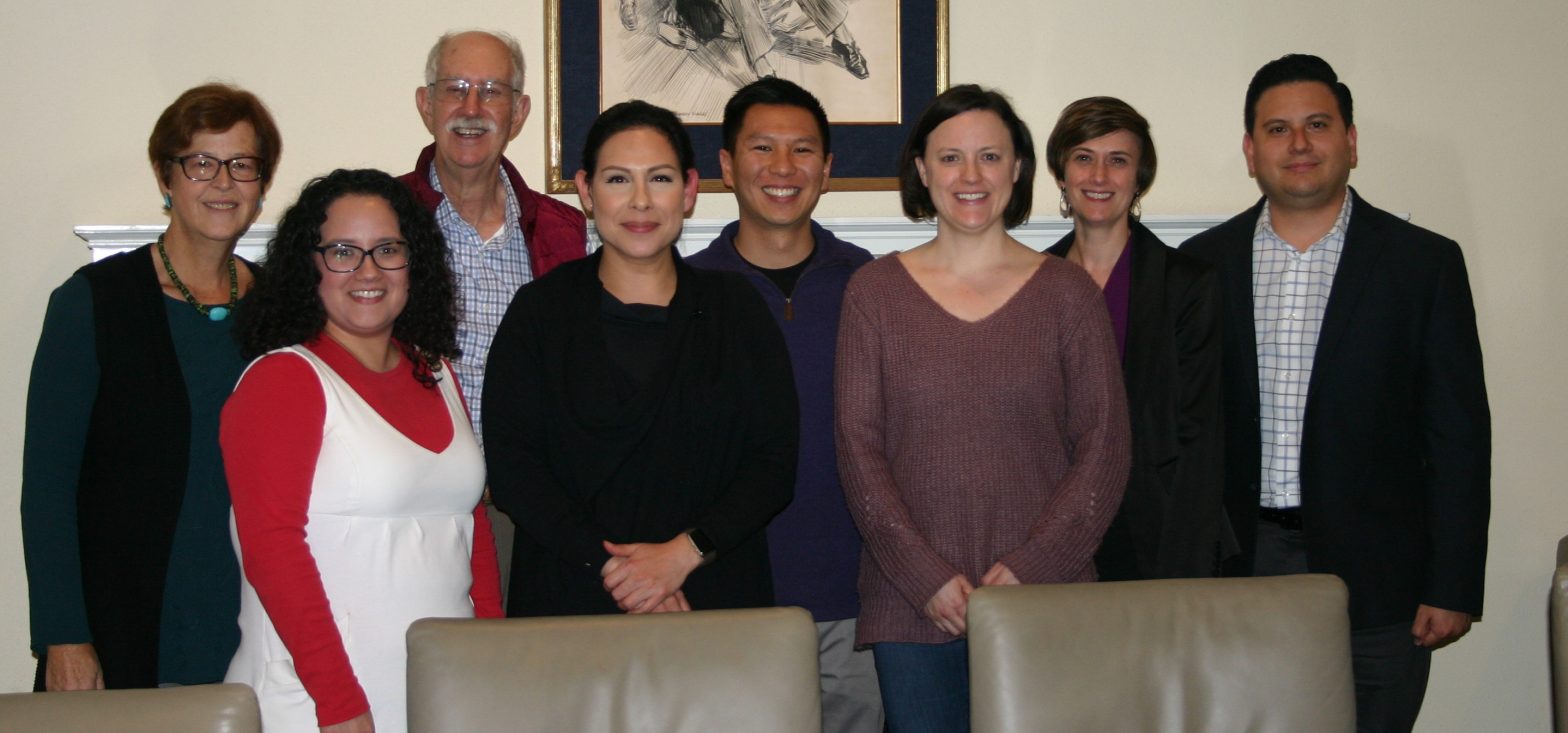Diversifying Across the Board
“In current nonprofit structures, the board of directors has an enormous amount of power and often do not have the lived or learned experiences necessary to understand systems of oppression and how they can manifest in nonprofit programming and operations.”
– Erika Chen, Seattle-based activist and former development professional
Jericho Road Pasadena is celebrating an important anniversary this year—our tenth. For the past decade, JRP has worked to strengthen nonprofits and communities through pro bono capacity-building projects as well as board training and board-matchmaking. All along, JRP has consistently worked to diversify nonprofit boards so their members more closely reflect the cross-section of people in the communities that their foundations serve.
Shelley de Leon just celebrated one year of board service with the Friends of the Pasadena Library. She is the youngest person on her board and jokingly identifies as “the only non-millionaire.” Shelley shared her perspective about socioeconomic diversity on her board and how it helps to better serve library clients: “It’s essential to have input from people using our services, and from people who look like those people—people like me. Having someone on the board who has lived experience—working class parents, a teacher, or a former student who needed the library just to function and get by—that perspective changes the way the board works and the way the organization fundraises. I feel we can do more when we know firsthand what it’s like to struggle to find a job and other problems that are affecting people in this current moment.”
As Shelley noted, diversifying boards helps nonprofits better serve their communities. Having boards reflect the people they serve allows nonprofits to stay relevant and do good work that does more than simply maintain an unjust status quo. She added:
“To me diversity should span socioeconomic status, race, and age just to be relevant. The world is constantly changing, and we need to represent our clients as their needs shift. I am the youngest by far on my board, and I see that my age is useful and my input is valued. My socioeconomic status also brings a different perspective. We’re working to shift our model from mostly wealthy people funding programs they like and now trying to engage other donors that represent people who use our services.”
Javier Ortega also went through the JRP board-matchmaking program and has been on the board of the Pasadena Conservatory of Music since spring of 2019. Board service had always been on Javier’s mind, but he struggled to find a placement before working with JRP: “Finding the right channels to connect with a board happen was difficult. Without JRP, I wouldn’t have that network or known where to start.”
Javier self-identifies as “an older millennial, a Mexican-American, Hispanic. An American.” He knows that his age and his lived experience bring value to a board: “JRP’s emphasis on increasing board diversity is very important. Diversity of age is important since different generations have different perspectives. As millennials, we’re pretty savvy with technologies. If an organization has much older board members exclusively, they are missing out on certain perspectives and talents. It’s similar for race and immigration status, income level, upbringing, religion, etc.”
Javier echoes Shelley in encouraging other folks who do not necessarily see themselves serving on a board to seek those positions and dive into the work: “It’s great to be a part of an organization, to grow your community involvement and to feel like a part of the community and to make a difference. I also have noticed that in my own career, being on a nonprofit board makes people’s heads turn. People say, ‘You’re so young, how did you get on that board?’ It’s a great way to talk to peers in my own occupation—a great conversation starter.”
In a recent article, social sector strategy advisor Baljeet Sandhu offers insights that help to explain why individuals with relevant lived experiences often face significant barriers to nonprofit leadership roles and the power and prominence that accompanies them: “Individuals with relevant lived experiences, in combination with formal educational and leadership training, would be stronger candidates for chief executive and board member roles, but we’ve created a system in which social change educational opportunities are largely inaccessible to them due to barriers such as high levels of education as a prerequisite for inclusion in these programs and/or prohibitive fees to participate in such educational and leadership training.”
Sandhu laments the inaccessibility of board membership opportunities for most people with lived experience. And while that is true elsewhere, here—locally—JRP’s board-matchmaking efforts are making those opportunities not only accessible but readily attainable. As JRP celebrates 10 years of strengthening nonprofits and communities, we count it as one of our greatest achievements.
Considering serving on a board? If you are interested in learning more about JRP’s board training and board-matchmaking services, contact JRP at ExecDirector@JRPasadena.org or 626-714-7234. JRP’s next Effective Board workshop is scheduled for Nov. 3, 2020. Please visit https://jrpasadena.org/board-service-2/ to get details, including the link to register.
Footnote 1: What I Learned from Losing Two Jobs in the Fight for Racial Equity, Community-Centric Fundraising, July 2020
Footnote 2: Building Opportunities for Inclusive Leadership, Stanford Social Innovation Review, December 2016

